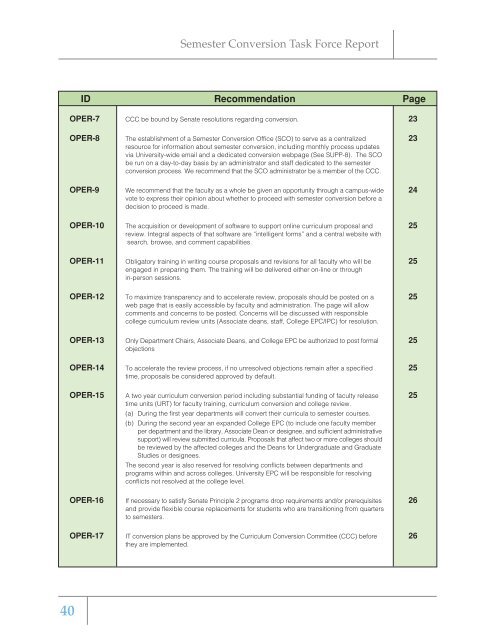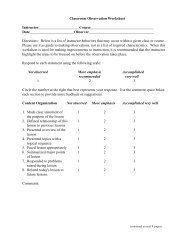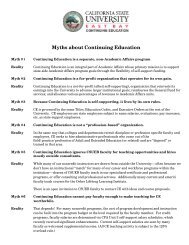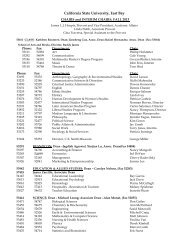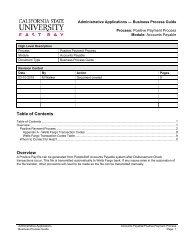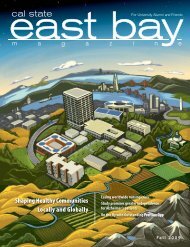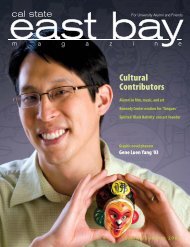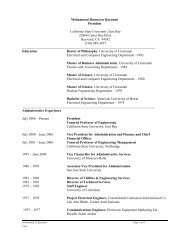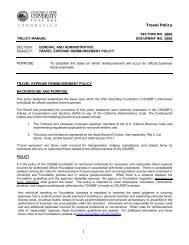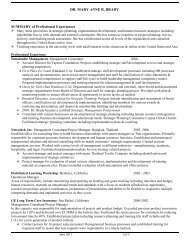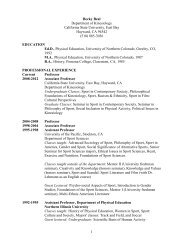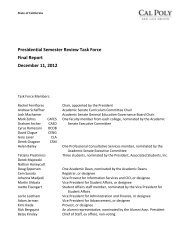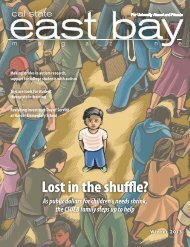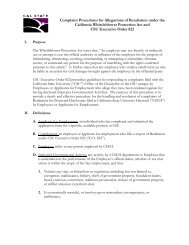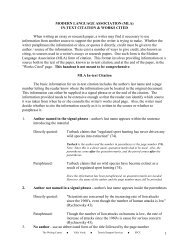Report of the Semester Conversion Task Force - California State ...
Report of the Semester Conversion Task Force - California State ...
Report of the Semester Conversion Task Force - California State ...
- No tags were found...
You also want an ePaper? Increase the reach of your titles
YUMPU automatically turns print PDFs into web optimized ePapers that Google loves.
<strong>Semester</strong> <strong>Conversion</strong> <strong>Task</strong> <strong>Force</strong> <strong>Report</strong>ID Recommendation PageOPER-7 CCC be bound by Senate resolutions regarding conversion. 23OPER-8 The establishment <strong>of</strong> a <strong>Semester</strong> <strong>Conversion</strong> Office (SCO) to serve as a centralized 23resource for information about semester conversion, including monthly process updatesvia University-wide email and a dedicated conversion webpage (See SUPP-8). The SCObe run on a day-to-day basis by an administrator and staff dedicated to <strong>the</strong> semesterconversion process. We recommend that <strong>the</strong> SCO administrator be a member <strong>of</strong> <strong>the</strong> CCC.OPER-9 We recommend that <strong>the</strong> faculty as a whole be given an opportunity through a campus-wide 24vote to express <strong>the</strong>ir opinion about whe<strong>the</strong>r to proceed with semester conversion before adecision to proceed is made.OPER-10 The acquisition or development <strong>of</strong> s<strong>of</strong>tware to support online curriculum proposal and 25review. Integral aspects <strong>of</strong> that s<strong>of</strong>tware are “intelligent forms” and a central website withsearch, browse, and comment capabilities.OPER-11 Obligatory training in writing course proposals and revisions for all faculty who will be 25engaged in preparing <strong>the</strong>m. The training will be delivered ei<strong>the</strong>r on-line or throughin-person sessions.OPER-12 To maximize transparency and to accelerate review, proposals should be posted on a 25web page that is easily accessible by faculty and administration. The page will allowcomments and concerns to be posted. Concerns will be discussed with responsiblecollege curriculum review units (Associate deans, staff, College EPC/IPC) for resolution.OPER-13 Only Department Chairs, Associate Deans, and College EPC be authorized to post formal 25objectionsOPER-14 To accelerate <strong>the</strong> review process, if no unresolved objections remain after a specified 25time, proposals be considered approved by default.OPER-15 A two year curriculum conversion period including substantial funding <strong>of</strong> faculty release 25time units (URT) for faculty training, curriculum conversion and college review.(a) During <strong>the</strong> first year departments will convert <strong>the</strong>ir curricula to semester courses.(b) During <strong>the</strong> second year an expanded College EPC (to include one faculty memberper department and <strong>the</strong> library, Associate Dean or designee, and sufficient administrativesupport) will review submitted curricula. Proposals that affect two or more colleges shouldbe reviewed by <strong>the</strong> affected colleges and <strong>the</strong> Deans for Undergraduate and GraduateStudies or designees.The second year is also reserved for resolving conflicts between departments andprograms within and across colleges. University EPC will be responsible for resolvingconflicts not resolved at <strong>the</strong> college level.OPER-16 If necessary to satisfy Senate Principle 2 programs drop requirements and/or prerequisites 26and provide flexible course replacements for students who are transitioning from quartersto semesters.OPER-17 IT conversion plans be approved by <strong>the</strong> Curriculum <strong>Conversion</strong> Committee (CCC) before 26<strong>the</strong>y are implemented.40


